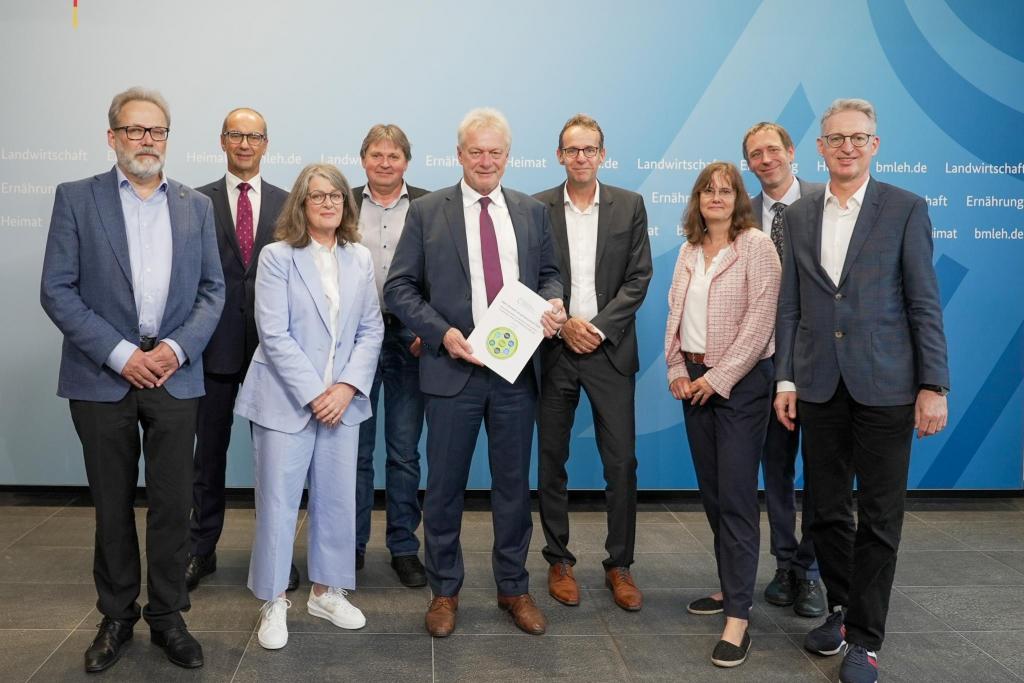

Germany’s Ag Ministry advisors urge political backing for alternative proteins
Germany’s leading agricultural advisory board has called on the federal government to provide active political support for alternative proteins, citing their growing role in building a more sustainable food system.
In a new report presented this week to Federal Agriculture Minister Alois Rainer, the Scientific Advisory Board on Agricultural Policy, Food and Consumer Health Protection (WBAE) urged policymakers to give plant-based, fermentation-derived, and cell-cultivated proteins equal footing alongside both whole plant foods and traditional animal-based products.
The report emphasizes the need for a fact-based, inclusive debate on the future of food, avoiding ideological divisions. According to the WBAE, alternative proteins can serve as practical options for consumers looking to shift their diets or explore more sustainable choices.
GFI Europe welcomed the report’s tone and findings. “We believe the proposed measures are well-suited to remove key barriers to market readiness for these new foods, particularly around innovation, reliable and efficient regulation, and fair competition,” the organization said in a statement.
The WBAE made several recommendations for how Germany could better support the development of the sector:
Innovation funding: The report highlights that products based on plants, fermentation, and cell cultivation are still in early stages of development and require stronger public investment. It recommends Germany create a clear, long-term research vision for alternative proteins, possibly via a technology roadmap, increase support for basic science, and build a coordinated research hub to connect key stakeholders.
Regulatory clarity: While the EU novel foods approval process is seen as sound, the WBAE notes that its high costs and long timelines can slow innovation. The board calls for increased support for companies preparing applications, legally secure options for food tastings (as recently introduced in the Netherlands), and a commitment to continuous review of how the EU system is implemented in practice.
Level playing field: The report stresses that structural disadvantages still affect alternative proteins compared with their animal-based counterparts. It singles out the higher VAT rate applied to plant-based milk as one such imbalance and backs efforts to correct it. A petition calling for this tax alignment has recently gained traction in Germany, with support from major players in the sector.
Health and processing concerns: The WBAE also calls for a more nuanced debate around food processing levels. It criticizes the overreliance on broad classification systems such as the NOVA score, which often labels plant-based options as overly processed. The report urges policymakers and the public to consider the actual nutritional composition of individual products rather than generalizing.
The WBAE’s recommendations align with the German government's stated ambition – laid out in its coalition agreement – to promote the development and market introduction of sustainable alternative proteins. Beyond environmental and health benefits, the report also highlights the sector’s economic potential.
A recent study by consultancy Systemiq found that with sufficient political support, Germany’s alternative protein industry could contribute up to €65 billion (approximately US$71 billion) to the national economy by 2045 and generate up to 250,000 new jobs across the supply chain.
“The new government committed in its coalition agreement to promote the development and market introduction of sustainable alternative proteins,” said Ivo Rzegotta, Senior Public Affairs Manager at GFI Europe. “This report from the Scientific Advisory Board now offers a blueprint for how to translate that commitment into concrete political measures. The proposals to boost innovation capacity, ensure transparent and efficient regulation, and secure fair competition are ideally suited to strengthening Germany’s role as a driver of innovation in this area.”
Rzegotta urged the federal government to integrate the board’s recommendations into its broader political strategy, particularly in relation to the promised national protein strategy and Germany’s overarching High Tech Strategy.
If you have any questions or would like to get in touch with us, please email info@futureofproteinproduction.com


-p-800.jpg)



